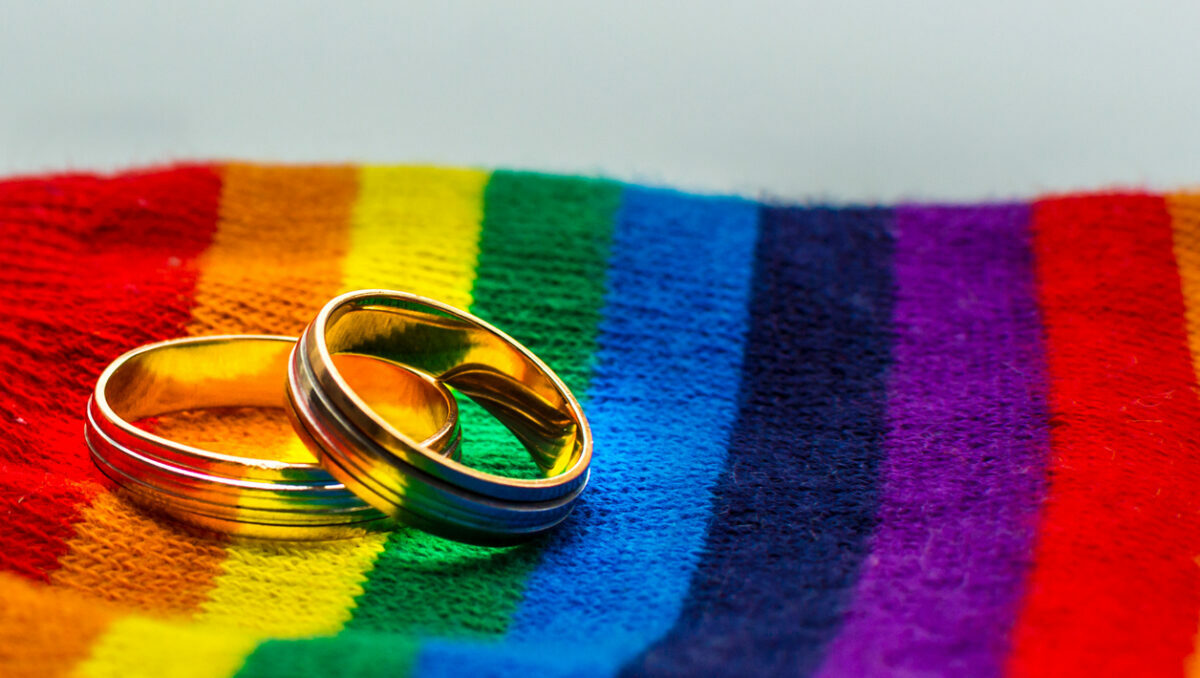The petitioners prayed the court to enforce the fundamental rights of LGBTQ+ individuals to marry any person of their choice.

The judgement will decide if India will be the 35th country to legalise same-sex marriage. (iStock)
The Supreme Court will deliver its judgement on a batch of petitions seeking recognition of same-sex marriages under the Special Marriage Act on Tuesday, 17 October.
A five-judge Constitution Bench comprising Chief Justice DY Chandrachud, Justice Sanjay Kishan Kaul, Justice S Ravindra Bhat, Justice Hima Kohli, and Justice Pamidighantam Sri Narasimha will deliver the judgement at 10.30 am.
The Constitution Bench reserved the judgement on 11 May after the hearings that had started on 18 April.
Tuesday’s judgement will decide whether India will be the 35th country to legalise heterogeneous couple marriages.
Same-sex marriage is now legal in 34 countries: The UK, the US, Canada, France, Germany, South Africa, Spain, Sweden, Switzerland, The Netherlands, Denmark, New Zealand, Australia, Austria, Argentina, Brazil, Belgium, Mexico, Cuba, Chile, Colombia, Costa Rica, Ecuador, Finland, Iceland, Ireland, Luxemburg, Malta, Norway, Portugal, Slovenia, Taiwan, Uruguay, and Andorra.
Estonia’s Parliament had, on 20 June, passed a law legalising same-sex marriage but it would come into force only on 1 January, 2024.
The BJP-led Union government has been strongly opposing the legal recognition of same-sex marriages and has contended that it would have a bearing on a large number of issues including adoption, and inheritance covered by different statutes.
The Union government even questioned the maintainability of the petitions seeking the top court’s nod for same-sex marriages.
The petitions sought legal recognition of same-sex marriages on the touchstone of equality of rights for LGBTQIA+ community with the heterogeneous couple marriage.
While limiting the scope of the heterogeneous couple marriage to the Special Marriage Act without touching upon other consequential issues including adoption, the Constitution Bench had on 18 April itself — the first day of hearing — said that it “cannot decide everything before deciding anything”, leaving other issues to follow in due course for their resolution.
However, the petitioners seeking a declaration in favour of same-sex marriages argued that they wanted it under the Special Marriage Act without touching any personal law governing family ties among Hindus, Muslims, Christians, and others.
The petitioners sought to enforce the fundamental rights of LGBTQ+ individuals to marry any person of their choice and said that “the exercise of which ought to be insulated from the disdain of legislative and popular majorities”.
The petitioners further asserted their fundamental right to marry each other and prayed for appropriate directions from the court allowing and enabling them to do so.
At the stage of the rejoinder arguments by the petitioners, Senior Advocate Mukul Rohatgi suggested a via media (a middle way or compromise between extremes) — the registration of an affidavit by same-sex couples of their decision to marry each other and that the same could be used for satisfying other statutory requirements, including insurance cover.
The National Commission for Protection of Child Rights (NCPCR) focused on the welfare of the child and the requirement of a mother to fulfil it.
The NCPCR stated that the entire architecture of laws was from the perspective of the welfare of the child being paramount and adoption was not an alternative to biological birth in families of heterosexual couples.
Among the states, Assam, Andhra Pradesh and Rajasthan opposed the legal recognition of same-sex marriages in the country whereas Maharashtra, Uttar Pradesh, Manipur and Sikkim sought more time to give their opinion on the issue.

May 14, 2024

May 14, 2024

May 14, 2024

May 14, 2024

May 14, 2024

May 14, 2024